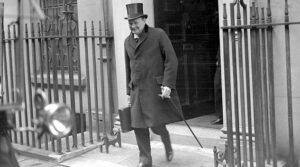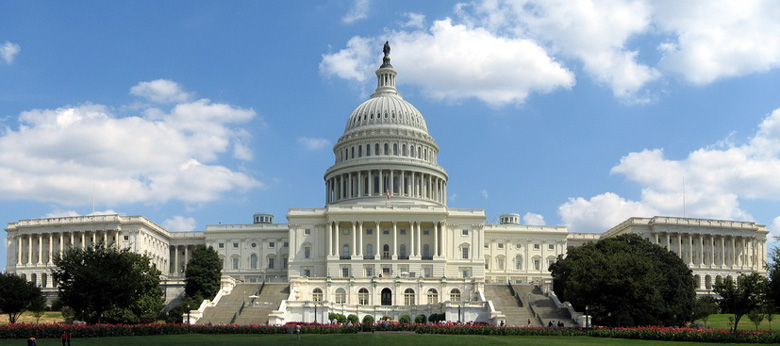
Bulletin #163 — Jan 2022
Churchill on the Hill

January 2, 2022
Anniversaries of Churchill Speeches to Congress
Last month marked the 80th anniversary of the first of three speeches that Winston Churchill delivered to the United States Congress. This month marks the 70th anniversary of his third and final address. Each of the three speeches, the second was made in 1943, were much more important than has been generally appreciated despite the fact that today each is probably best remembered for the jokes with which they began.
As soon as he learned of the Japanese attack on Pearl Harbor, Churchill began to plan for an official visit to Washington. This became more urgent when Germany and Italy declared war on the United States, and the Prime Minister believed it essential to persuade the administration to adopt a Europe-first policy. In fact, US Army strategists had already concluded months before that in just such a situation the European theater should have priority over the Pacific. President Roosevelt concurred with this view, but not all members of Congress agreed.
Churchill understood that he needed to talk up the British position to members of Congress in addition to coordinating war policy with the White House. The timing of the Pearl Harbor attack, however, created problems for Congress. Many members had already committed themselves to returning to their states during the holidays. Urgent new government business, though, meant that Congress would have to meet over Christmastime despite many leading members not being present.

2025 International Churchill Conference
Churchill arrived in Washington on December 22nd and made his first speech to Congress on the day after Christmas—known as Boxing Day in Britain. So many members of Congress were away, however, that it was decided to hold the meeting in the smaller Senate chamber. This would create a crowded room, ideal for generating dramatic visual images for the newsreel cameras recording the speech.
Vice President Henry Wallace presided in his capacity as President of the Senate, but House Speaker Sam Rayburn was among those away from Washington. In place of “Mr. Sam,” the Speaker pro tempore, Rep. William P. Cole (D–Maryland), sat next to Wallace on the platform behind Churchill.
After the preliminaries of thanking Congress for the invitation, Churchill made a joke: “I cannot help reflecting that if my father had been American and my mother British, instead of the other way round, I might have got here on my own.” This received a great deal of laughter, but the hour was indeed serious, and Churchill pulled no punches in describing the ordeal that lay ahead.
Churchill acknowledged the crucial success of the Lend-Lease program, which his audience had authorized the previous year. After emphasizing this and, inter alia, the stake which Congress already had in the continuation of a Europe-first policy, Churchill broached the subject of the Pacific War.
“What kind of a people do they think we are?” Churchill exclaimed. “Is it possible they [the Japanese] do not realize that we shall never cease to persevere against them until they have been taught a lesson which they and the world will never forget?” “Here the Prime Minister received a great burst of applause,” the New York Times reporter observed, “the crowded floor and galleries rising as one man to cheer him.” Churchill had closed the deal.
The invitation to speak to a joint session of Congress for a third time was not merely a courtesy. As before, there were knotty matters in Anglo-American relations to be addressed. In 1946, the British government had taken out a large loan from the United States and more recently had become the principal beneficiary of Marshal Aid. Above all, the Cold War, then running quite hot in Korea, dominated the international scene.
On this occasion all of Washington turned out to hear Churchill speak including Speaker Rayburn and Vice President Alben W. Barkley. “I had a reasonably good seat just behind the berobed Justices of the Supreme Court and a few rows of Senators,” Representative Gerald R. Ford (R–Michigan) later told his constituents. In 1952 members of Congress also included Senators Lyndon B. Johnson (D–Texas) and Richard M. Nixon (R–California) as well as Representative John F. Kennedy (D–Massachusetts).
Churchill had worked hard on his speech during his voyage across the Atlantic. After his introduction by the Speaker, the Prime Minister led with the statement: “I have not come here to ask you for money.” Taken aback, a slight pause ensued before Congress erupted with laughter and applause. Vice President Barkley especially enjoyed the joke, and even stoic Mr. Sam cracked a smile. Churchill turned all this into a loaded pause before continuing with the words, “to ask you for money to make life more comfortable or easier for us in Britain.”
After emphasizing that Britain was repaying the 1946 loan amid a steadily improving economy, Churchill indicated that his country required further American aid if Britain was to join the United States fully in providing for international security. “That is why I have come here to ask, not for gold, but for steel,” Churchill announced, “not for favours but equipment, and that is why so many of our requests have been so well and generously met.” By casting his speech as another strategic plan for successful partnership in a shared effort, Churchill continued to serve the needs of his nation through what he described as a “special relationship.”
Subscribe
WANT MORE?
Get the Churchill Bulletin delivered to your inbox once a month.




